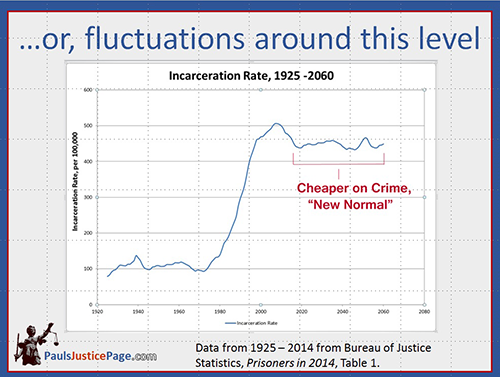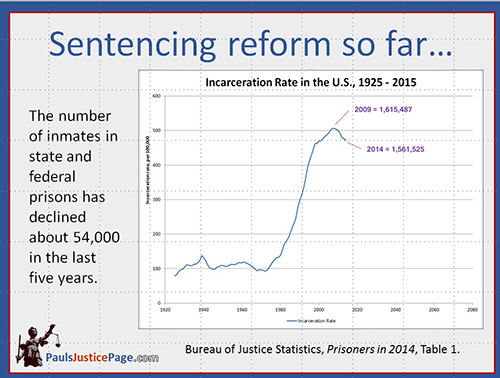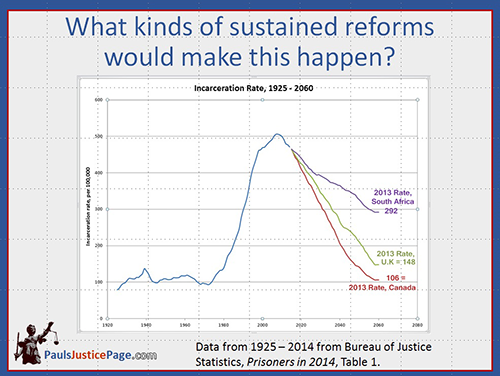Crime and Mass Incarceration: Reform or a 'New Normal'
The folks over at University of Michigan's Osher Lifelong Learning Institute (OLLI) asked to come back for another lecture.I had been doing some research for the 11th edition of The Rich Get Richer and the Poor Get Prison to update the opening of the book. It will be/came out Oct 2016 and I'm skeptical about how much will be accomplished. But see what you think.
1. Here is the incarceration rate, to show how much has been accomplished so far; it may or may not match the amount of bipartisan hype about the need for sentencing reform.
2. So what are the expectations for sentencing reform? What kinds of changes in legislation and political climate would be necessary so, over the next 45 years, we could get down to the current incarceration rate of South Africa, UK, or Canada?
3. If that is too ambitious to take seriously, maybe we are going to tweak the current system and get a slightly lower 'new normal'? Maybe 'cheap on crime' is masquerading as 'smart on crime'? (The 'old normal' was 1925 - 1975, with peak incarceration in 2009, and a slightly lower around which incarceration rates can fluctuate for the next 50 years.)

The OLLI folks were doing a series on violence, and they wanted me to spend some time addressing solutions. The talk tries to do some critique of mass incarceration in terms of understanding how incarceration becomes less effective at crime reduction as we incarcerate more and more (and more and more and more...) people. It also addresses sentencing reform, prison reform and crime prevention strategies that go beyond reliance on the CJ system.
ABSTRACT
The U.S. is experiencing what observers call mass incarceration, hyper-incarceration and ‘a plague of prisons’ because it has the highest incarceration rate in the world. Many criminologists believe prison currently causes more crime than it reduces. With Republicans and Democrats crowing over the need for reform, significant change may seem like a foregone conclusion. Is it? How far would reforms really go? What important ideas are not being discussed?
Crime and Mass Incarceration: Reform or a 'new normal'? by Dr Paul Leighton
Download .pptx of presentation
See also
Prison Privatization in US and Japan (2014 OLLI presentation, with information on Shimane Asahi Rehabilitation Center - a Japanese high-tech, public-private partnership)
Why Inequality Matters for Criminology and Criminal Justice (2014)
Manifestations of Poverty (longer lecture for EMU Honors College - 2013)
Criminology Needs More Class: Inequality, Corporate Persons and an Impoverished Discipline (#occupy)
The Rich Get Richer and the Poor Get Prison: Inequality, Corporate Power and Crime (Sidore lecture at Plymouth State)
« Private Prisons: An Incomplete Survey | Main | Why Is There No Criminology of Wage Theft? »

